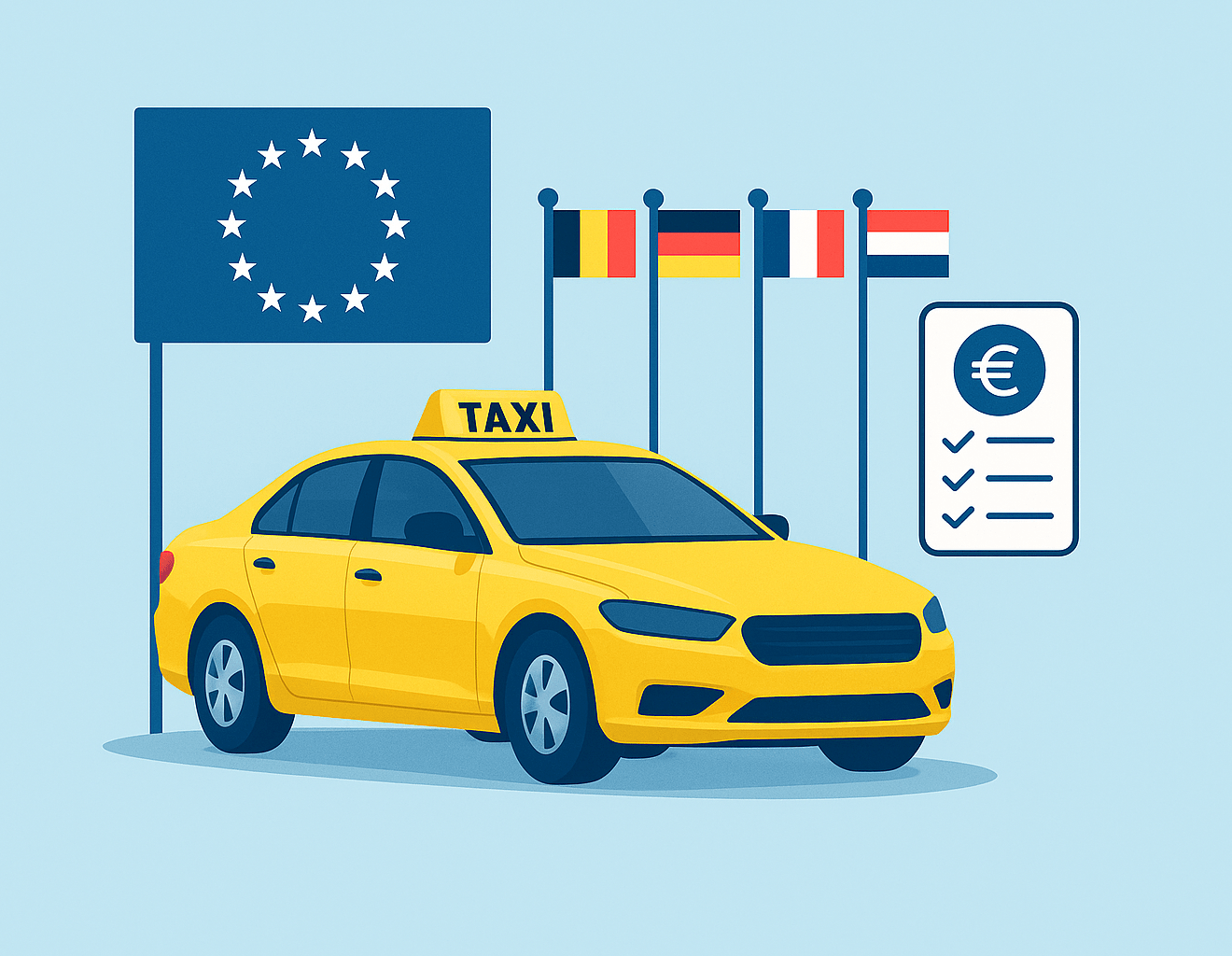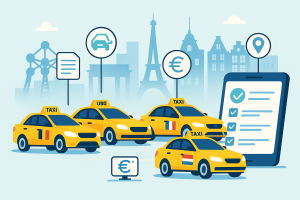New rules and taxi law are coming into force for taxi and transport companies across Belgium, Germany, France, and the Netherlands in 2025. These changes affect everything — from who can operate, to how fares are calculated, to what vehicles are allowed on the road.
In this article, you’ll find a clear summary of the most important updates in each country — plus tips to help your company stay ahead.
Belgium: Different regions, different rules
Wallonia Taxi Law
- In late 2024, Wallonia rolled out a major reform. The goal was to simplify and unify rules for taxis, VTCs, and shared ride services.
- Now, all services use just one license type called “TL”.
- In addition, vehicles must be no older than 7 years.
- The region also introduced new pricing: passengers pay a minimum of €6.50 for the first 2 km, and no more than €2.70 per km after that.
- Starting in 2026, companies will need to send all B2B invoices digitally.
Flanders Taxi Law
- Flanders is taking a different approach. The region focuses on environmental standards and future technologies.
- Only low-emission vehicles qualify for new taxi licenses.
- At the same time, Flanders is preparing to launch autonomous taxis by mid-2026.
Tip: Don’t forget — Belgium’s regions follow different rules. Therefore, always check that your fleet and documents match the local guidelines.
Germany: Federal taxi law and city experiments
National updates
Germany has made big changes to its passenger transport law:
- Ride platforms like Uber must follow stricter rules — no street pickups and mandatory return to base after trips.
- All taxis now require certified electronic cash registers (KassenSichV standard).
- Minimum wage increased to €12.82/hour in 2025.
Hamburg
This city is pushing hard for clean transport:
- From 2025, only electric or hydrogen taxis can be newly registered.
- Fixed fares introduced for pre-booked rides, starting at €4.50.
- Driverless taxi trials are underway in the Rhine-Main area.
Tip: Even though some rules apply only in certain cities, they often set the trend for wider adoption.
France: Price updates and driver protests
France is updating its national taxi fare structure:
- Base fare: €4.48
- Per km: €1.29
- Hourly max: €41.76
- Minimum ride price remains €8
At the same time, drivers are protesting changes to how medical transport is handled, fearing reduced income.
France is also pressing ahead with green rules under its mobility law (LOM). Taxi and VTC operators are expected to transition to cleaner vehicles.
Tip: Now’s the time to plan vehicle upgrades and watch for government incentives.
Netherlands: Full transparency and zero-emissions push
According to the European Commission’s Urban Mobility Observatory, major cities in the Netherlands will allow only zero-emission taxis starting in 2025. Two major changes are happening in the Netherlands:
- From July 2025, all taxi rides must be logged in the national Central Taxi Database (CDT). Full compliance will be mandatory by 2028.
- In major cities, only zero-emission taxis can be registered.
Fare limits have also gone up:
- Start fare: €4.15
- Per km: €3.05
- Hourly max: €49.37
Tip: The shift to data-driven compliance means companies need smart systems in place.
🧩 Navigating 2025 Taxi Law Changes: What You Can Do Now
These legal updates affect thousands of transport businesses across Europe. Staying compliant isn’t optional — it’s essential. But with each region having different requirements, managing it all manually can quickly become overwhelming.
That’s where modern software comes in.
✅ Taxi Dispatch Software: Your Compliance Partner
If your company needs to handle digital invoicing, monitor driver activity, track ride data, and manage a growing eco-friendly fleet — then taxi dispatch software is more than a tool. It’s your competitive edge.
It helps you:
- Automate B2B reporting and billing
- Stay within legal fare structures
- Track rides for national databases like the CDT
- Stay aligned with green vehicle requirements
- Manage wage calculations and schedules
- Give your drivers and passengers a smooth experience
Want to see how it works? Explore our dispatch software here
 Subscribe
Subscribe






